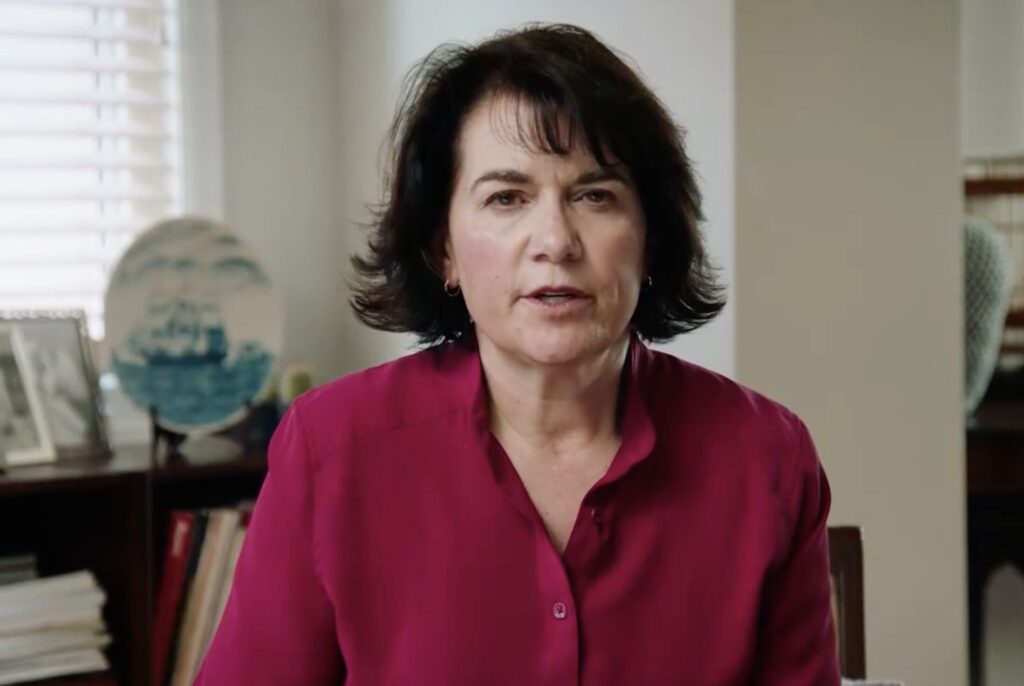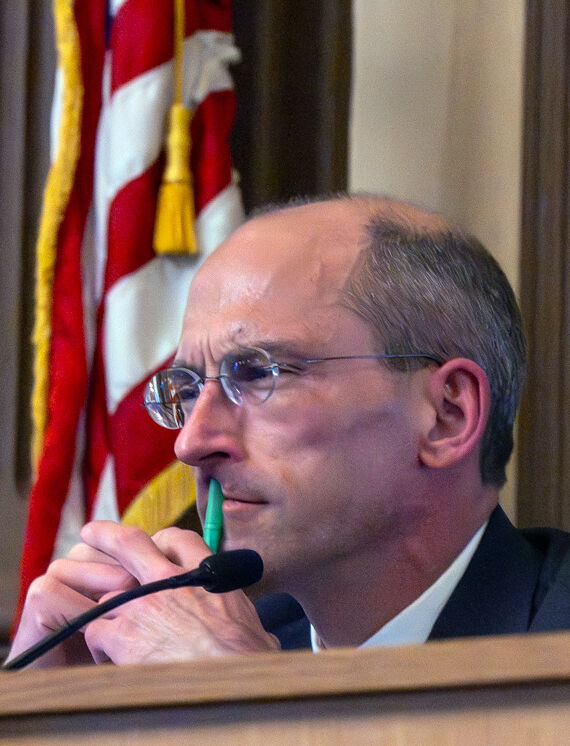Long Bill makes way out of Senate
Ten hours, almost 90 amendments, and in the end, a balanced budget left the state Senate Thursday on its way to the House.
The Senate, Thursday morning, voted 21-14 to approve the state’s $26.4 billion 2015-16 budget. The approval came after a marathon session that lasted until almost 11 p.m. the previous night. But the budget did not leave the Senate chamber without rancor from Democrats who claimed their priorities were ignored.
The budget changed little during Wednesday’s debate, despite dozens of efforts by both caucuses.
Among the Republicans’ priorities: defunding PARCC, the state’s K-12 assessments program; defunding 14 inspectors under the Colorado Oil and Gas Conservation Commission, and funding the Adult Agriculture Leadership Grant Program in the Department of Agriculture. Sens. Mary Hodge, D-Brighton and Jerry Sonnenberg, R-Sterling, sponsored that amendment.
Only the last item, at a cost of $300,000, made it through the debate and onto the budget.
Democrats’ priorities centered on health issues, such as eyeglasses, diabetes education, birth control and family planning education, and substance abuse. The only amendment to make it onto the budget, from Sen. Kerry Donovan, D-Vail, provides $750,000 for rural economic development grants in the Department of Local Affairs.
Republicans did learn a valuable lesson about counting during the debate. An amendment to put $4 million into funding children’s eyeglasses, offered by Sen. Linda Newell, D-Littleton, passed because two Republicans were out of the chamber at the time of the vote. One of those absent was the caucus’s Majority Whip, Sen. Randy Baumgardner, R-Hot Sulphur Springs, who enforces caucus discipline.
The amendment was later stripped off the bill in a procedure move.
Despite the changes, a balanced budget is moving out of the Senate. JBC member Sen. Pat Steadman, D-Denver, told The Colorado Statesman Thursday that about $1.5 million was left on the table, and that would be more than enough to cover the changes.
Traditionally, however, any amendments to the budget are stripped out by the opposite chamber. The next committee to review the budget and its accompanying 18 bills is the House Appropriations Committee, which is chaired by JBC member Rep. Dave Young, D-Greeley.
Severance tax
The 2015-16 budget package includes a bill, Senate Bill 15-255, to take $20 million from the state’s severance tax fund to balance the budget. The bill got strong opposition in the Senate Appropriations Committee Monday and another battle on the Senate floor Wednesday.
Severance taxes are levied by the state for “severing” a mineral from the earth. Half of the severance taxes received by the state go back to local communities impacted by mineral extraction. The Department of Local Affairs distributes those funds through its Local Government Severance Tax Fund. The other half goes to water projects, regulation of oil and gas and mineral industries, low income energy assistance and wildlife conservation. The Department of Natural Resources distributes the funds through its Severance Tax Trust Fund. Water projects, under the Colorado Water Conservation Board, get the lion’s share of the severance tax money that goes to DNR.
SB 255 passed the appropriations committee on a 4-3 vote. Senators on Wednesday divided along views that the severance tax belonged to the communities that are impacted by mineral extraction, and JBC members who believed that the tax contributed to the state’s TABOR refund and should be part of the solution. Economists estimated the state exceeded its TABOR revenue limits by $70 million in 2014-15. That will have to be paid out of the 2015-16 budget.
During Wednesday night’s debate on SB 255, Sonnenberg pointed out that the severance tax fund was raided several times during the recession to balance the budget. When times were tough, he said, “We didn’t have any other options.” But now that the state is in a better economic position, the General Assembly should look elsewhere for the $20 million, he said.
Steadman said that testimony in the appropriations committee indicated that the severance tax is viewed as an entitlement by local governments. However, he said, the tax contributed to the TABOR refund, and it should be used to help pay the refund.
Steadman gave a list of alternatives, none of which he found attractive, if the legislature wants to find the $20 million elsewhere. The easiest choice, he said, would be to take $20 million from the $25 million provided to reduce the K-12 negative factor.
“We’ve been very generous with this money with communities across the state,” responded Senate President Pro Tem Ellen Roberts, R-Durango. She noted the severance tax has paid for water projects in areas not affected by mineral extraction, such as Chatfield Reservoir in Jefferson County.
The tax is not an entitlement, she said. It’s to help support oil and gas communities, and many of those areas have not yet recovered from the recession. “It’s what the severance tax is intended to do,” she said. And with $449 million taken from the fund since 2009, “it’s hard to say ‘thanks’ for cutting only $20 million,” she added.
SB 255 passed 21-14, on a broadly bipartisan vote.
Immunizations
An amendment by Sen. Tim Neville, R-Littleton, to take $1.2 million out of the Colorado Immunization Information System turned into an attack on the credibility of physicians on the vaccination issue.
Sen. Kevin Lundberg, R-Berthoud, said he was “sick and tired of the medical establishment not giving us all the facts…The medical community had better figure out that people will believe them when the facts are believable.” Vaccinations have been an incredible boon, Lundberg added, but the “other side of the story” is not being heard.
Lundberg’s comments provoked a strong response from Sen. (and physician) Irene Aguilar, D-Denver. “I’m disappointed that the integrity of physicians is questioned,” she said. “To imply that the entire profession…is playing a hoodwink game and lying to them about complications from vaccinations is purely offensive.”
Neville appeared to be the only senator to vote for the amendment.
Crossing the aisle
On Thursday, three Democrats voted along with the 18 Republicans to pass the budget. That included Sen. John Kefalas, D-Fort Collins. He told The Statesman “I wanted to honor and respect the work of the Joint Budget Committee…We had robust discussions yesterday, we had a chance to offer our amendments and it’s time to move forward.”
Sen. Leroy Garcia, D-Pueblo, also voted for the budget. “I believe the work that happens in the budget is very important…I’m not entirely pleased with it altogether, but it’s not worth saying that I don’t support the work that has gone into it.”
Garcia said there were areas in the budget where Republicans could have done more for southeastern Colorado. He pointed to an amendment he sponsored with Sen. Larry Crowder, R-Alamosa, to put $1.5 million toward repairs to the Southwest Chief Rail Line that runs through southeastern Colorado. Garcia noted the amendment failed by only one vote. “While I agree with some provisions, and wished the Southwest Chief had passed, I can’t throw the baby out with the bathwater.”
Fourteen Democrats voted “no” on the budget, including Sen. Cheri Jahn, D-Wheat Ridge, who pointed out that in 13 years in the General Assembly, this was her first “no” vote on the budget.
Jahn, a fiscal conservative, pointed out that she worked with Republicans last year to help them get their priorities into the budget, a total of $51.9 million in appropriations. Two amendments, which she helped pass, came solely from Republicans. That included $10 million for the reconstruction of Berndt Hall at Fort Lewis College, an amendment sponsored by Sen. Bill Cadman, R-Colorado Springs. Two others, with bipartisan sponsorship, also passed, including $20.8 million for Quigley Hall at Western State Colorado University, an amendment she carried with Sen. Greg Brophy, R-Wray.
“I am so incredibly disappointed that this budget year, on this floor, in this part of the budget process, for 13 years I’ve been here, didn’t allow for the camaraderie that I’ve come to know.” Jahn told her Senate colleagues. “At the end of the day, the bipartisanship for issues didn’t come to the floor where we could work together. For the first time in 13 years, I’m voting no on this budget. It wasn’t a decision I came to lightly. I can’t support what happened yesterday.”
After the vote, Jahn told The Statesman the JBC does a really good job but she has worked with her colleagues across the aisle on amendments “because it was the right thing to do.” None of the things she worked on for last year’s budget were in her district, she said, adding that she sometimes gets in trouble with her caucus for working with the other side. “I’m taken to the woodshed a lot because I’m bipartisan when they don’t want me to be. But the citizens expect us to work in a bipartisan fashion all the way through the process.”
Despite the way the budget process worked this week, Jahn said she probably will continue to work across the aisle, “because that’s just me.”
There were Republicans for whom voting for the budget was something of a novelty. Lundberg pointed out that his “yes” vote Thursday was only the second time in 13 years that he had voted for the budget. JBC member Sen. Kevin Grantham, R-Canon City, voted for the budget that he has voted against the past two years.
Cadman defended his caucus’s process. “This wasn’t a lockdown. In nine hours [of debate], no one was shut out. Every amendment received a fair review.”
And given that the second reading debate took place on April Fools’ Day, there were quite a few moments of levity throughout the day. Sen. Andy Kerr, D-Lakewood, was removed from the chamber by the state patrol after a missing gavel was found under his desk. The members of the JBC attempted an amendment to the budget to defund the offices of governor, lieutenant governor, secretary of state, treasurer and attorney general because “our budget process would be so much simpler without them. We need to remove impediments to our progress,” joked Steadman.
– marianne@coloradostatesman.com













